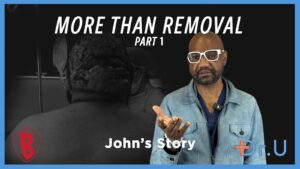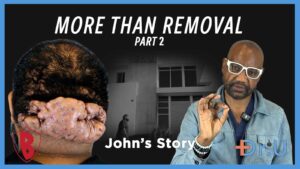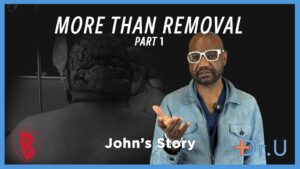By now, most people are very familiar with the concept of wearing sunscreen to protect the skin against UV rays which can lead to premature aging and even skin cancer. For years, countless articles have been written about this topic in scientific journals, beauty magazines, and leading media publications. YouTube is full of warning videos that are being promoted by companies such as The Marketing Heaven, by increasing the number of views in order to bring the topic closer to the general population and influence the awareness of the importance of skin protection. Now, experts are starting to recommend the use of sunscreen to protect the hair, especially if it is in the process of thinning and therefore subject to dryness, breakage, split ends, and premature greying. As a result, style and beauty media brands like StyleCaster, Elle, In Style, and Teen Vogue are promoting greater awareness about the need for sun protection for the hair. And consumers are seeing an increasing number of hair sunscreen products emerging on the market.
How Do Sun Rays Hurt Your Hair?
UV rays contribute to the formation of free radicals by knocking off, so to speak, the outer electrons in the oxygen molecules of your body. These free radical compounds then act as scavengers by attempting to regain these electrons by taking electrons from other molecules in your tissues. This creates an oxidative chain reaction that causes damage to cellular and protein structures.
The outer shiny part of your hair strands is a protective sheath called the cuticle. When this is damaged, your hair is more likely to lose much of its oil and moisture content, become dull, brittle, and even lose its original luster due to the degeneration and breakdown of protein bonds within the inner core as well as the outer layer.
Hair sunscreens create an added barrier of protection, preventing UV rays from penetrating the hair shaft.

UV Protection For Color Treated Hair
If you receive regular chemical treatments, UV rays from the sun will affect the pigmentation of your hair and distort the brightness of your desired color. Professional colorists assert that hair that has been chemically treated faces a much higher risk of moisture loss.
According to Daniel Sanchez, a colorist at Frederic Fekkai who has treated celebrity clients like Kate Hudson and Karlie Kloss, “On brunettes, the sun can bring unwanted warmth to the hair. On blonds, the sun can make the color fade faster and create serious dryness.”
Sunscreen For Hair and Scalp- How Hair Sunscreen Products Fight Against Hair Loss
The sun’s rays not only damage your hair shafts, but the UV promotion of free radicals also affects your scalp and can even damage your hair follicles.
Studies on male identical twins have shown that the twin who engages in less healthy lifestyle habits, including spending larger amounts of time in the sun experiences a faster rate of hair loss due to androgenic alopecia (i.e. common baldness due to genetics).
Even though genetics is a fixed factor, environmental variables can heavily influence how fast you lose your hair.
Although excessive sun exposure is undeniably harmful, hair sunscreens act as an environmental variable that can protect the follicles and prevent early hair loss.
Ingredients In Hair Sunscreen Products To Look For
Active sunscreen ingredients intended for the skin will either take the form of physical particle blockers that deflect UV rays, such as zinc or titanium dioxide, or they will be chemical blockers.
Physical blockers are less likely to adhere to the hair. So when it comes to formulating hair sunscreens, the active ingredients are usually chemicals (natural or synthetic) that will absorb UV rays so that your hair cuticle does not.
If you are interested in natural ingredients that can protect your hair against the damaging effects of the sun, here are a few examples to consider
Buriti Oil
Buriti oil does not act as a protective barrier. And technically, it is not sunscreen. However, it will absorb UV rays and prevent photo-oxidation from damaging your hair
Vitamin E Oil
Like Buriti oil, Vitamin E oil is also not an actual sunscreen. But it also absorbs UV rays and helps prevent free radical damage.
Red Raspberry Oil
Studies show that red raspberry oil does act as a natural sunscreen with SPF ranging from 28-50.
The growing awareness of sun damage to the hair has only started a few years ago. However, for those of you who have wondered why adult hair doesn’t look as shiny, soft, and glossy as hair seen on children, it is very likely that sun damage could be the main culprit. Using both skin UV skin protectants and hair sunscreen products on a daily basis is now becoming a must-have beauty and grooming practice for both men and women alike.
Have more questions about sun damage to the hair? Ask Dr. U today!
FAQ – Hair Sunscreen Products
Can I make a hair sunscreen as a DIY by diluting skin sunscreen in water?
The sunscreen products sold for the skin usually have a very thick consistency. Adding it to water would not produce an even consistency that you could easily spray on. Also, sunscreens for the skin may make your hair look greasy. It is better to buy a sunscreen that is formulated for use on the hair.
Would hair sunscreens help with thinning hair?
Yes, many dermatologists agree that applying sunscreen to your scalp is important and even more so if your hair is thinning. The follicles beneath your skin are already miniaturizing and producing thinner hair shafts. UV rays from the sun can damage the tissues in your skin, including the follicles even further. Also, when hair is thinning, it is also more susceptible to breakage, frizziness, and split ends as well as turning grey or white much faster. So applying hair sunscreens to the shafts will help protect them from these issues.
Further Reading
Read this step-by-step guide for dealing with a sun-damaged scalp.
Click here to find out what Dr. U thinks about natural products.




